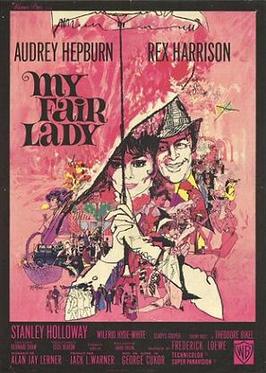Camazotz. The Community. Milky Way Society. Every socialist and communist society ever.
"On Camazotz we are all happy because we are all alike. Differences create problems.""Why do you think people get confused and unhappy? Because they all live their own separate, individual lives.""In Camazotz all are equal. In Camazotz everybody is the same as everybody else.""You Elevens have spent all your years till now learning to fit in, to standardize your behavior, to curb any impulse that might set you apart from the group.""Our people made that choice, the choice to go to Sameness.""We really have to protect people from wrong choices."
It sounds so good, doesn't it? Lack of differences. Being the same. Following the same path and knowing exactly what to do because someone else already did it. No uncertainty.
People do not come from cookie cutters.
Everyone is different. Everyone has a different path. Everyone has a different story to tell, a different mission to fulfill. Everyone has different talents, different circumstances, different callings. And that's what makes the world such an interesting place.
We need George Washingtons. We need William Wilberforces. We need Albert Einsteins and Isaac Newtons. We need Mozarts and Vivaldis. We need people like Monet and Van Gogh. We need Charles Dickenses and Jane Austens and Jules Vernes and Rudyard Kiplings. We need Clara Bartons and Florence Nightingales. We need Patrick Henrys and John Adamses and George Wythes. We need Columbuses and people like Lewis and Clark. We need Nathan Hales. We need Shirley Temples and Jimmy Stewarts. We need Alexander Graham Bells and Wilbur and Orville Wrights. We need Walt Disneys and Bing Crosbys. We need John Peter Gabriel Muhlenbergs and John Newtons. We need Jim Elliots and Gladys Aylwards.
Communism doesn't work. Sameness doesn't work. The more you try to push people into a mold, the more you try to live life by a formula, the more you try to push everyone down the same path, the more you lose the rich tapestry that is this thing we call culture, this thing we call life. Yes, oftentimes differences create strife, especially when those around you disagree with those differences. Yes, sometimes it creates wars. But it also creates beauty. It creates a more full picture of humanity, of life, of God's creation.
A puppy and a fish have vastly different lives. But is that puppy a failure because it doesn't grow up to swim in the depths of the ocean like a fish? Is the fish a failure because it can't run and jump like a dog?
Just so, every person's path is different. Every person's life calling is different. Some are called to be politicians, some entertainers, some teachers, some inventors, some artists, some musicians, some doctors, some lawyers, some mechanics, some construction workers, some foreign missionaries, some soldiers, some actors, some pastors, some seamstresses, some stay-at-home moms.
And that's okay.
Some are called to seek higher education, some to specialize in trade, some to pursue arts.
Some are called to marriage early in life, some later, some never. Some are called to long and slow relationships, some to whirlwind romances. Some are called to raise lots of children, some few, some none at all. Some are called to foster and/or adopt, some are not.
Some are called to live publicly in the spotlight, some are called to do their work behind the scenes known only to their family and friends.
Some people are bubbly and friendly, some are shy and reserved. Some have lots of various interests and abilities, some are highly specialized in fewer. Some make the big bucks and become rich and famous, some are satisfied with making ends meet and living a quiet family life.
And that's okay.
I'd say there is no one definition of success, because there are infinite ways to succeed, but that wouldn't be quite accurate. There is one way to succeed and one only, though it is manifested differently in every single person that has lived and ever will live.
The way to succeed is to follow God's plan for your life.
Whether that be college, starting a small business, going out and getting a job, getting married, staying single, having kids, not having kids, joining a foreign mission, treating your home as a mission field (because everywhere on earth is a mission field), being well-known, playing a significant role only to your friends and family...whatever it is, if you're following God's plan for your life, you are succeeding.
None of this Camazotz alike-ness. None of this Giver Sameness. None of this Regulation Standardization from my own work in progress. God made us all different. These books illustrate how horrible things become when we fail to recognize and accept those differences.
Live for God. He will direct your path. It will look completely different from the path of the person next to you, but don't let someone else's view of success, or our culture's narrow-minded view of success, determine your path in life. Commit your way to the Lord, trust in Him, and He will bring it to pass.
You do not come from a cookie cutter. God crafted you as an individual to His purpose, and He will direct that purpose in your life.
"Trust in the LORD with all your heart, and do not lean on your own understanding. In all your ways acknowledge him, and He will make straight your paths." --Proverbs 3: 5-6












